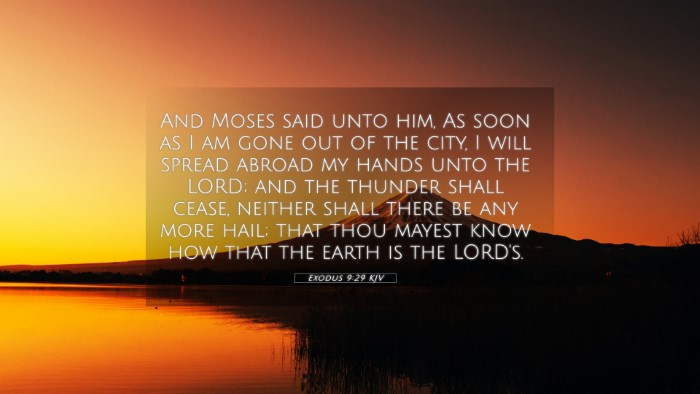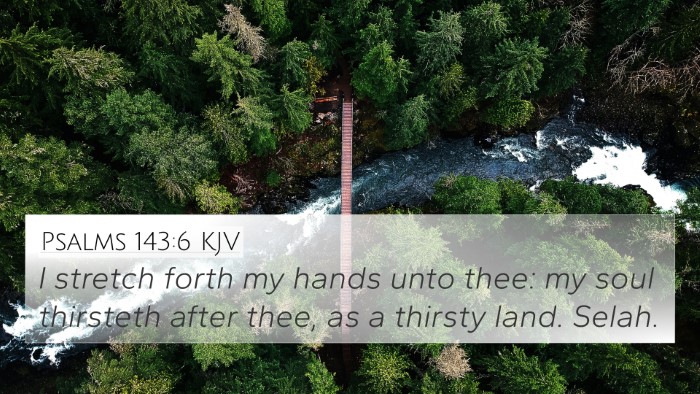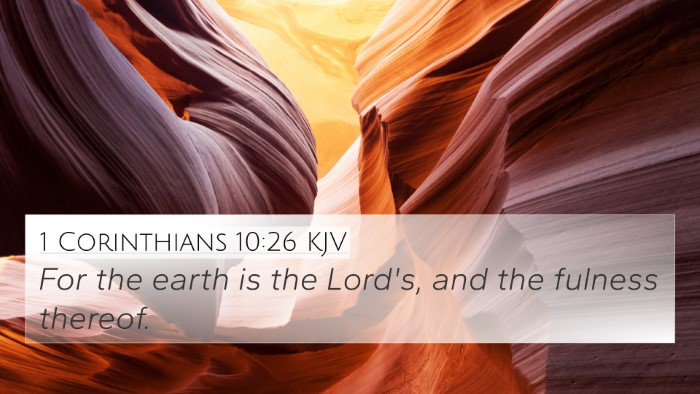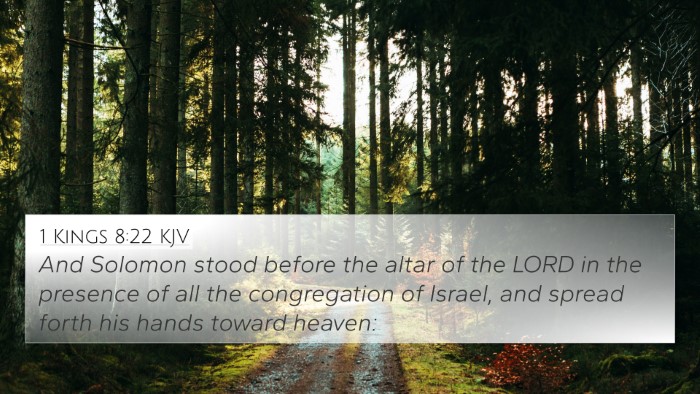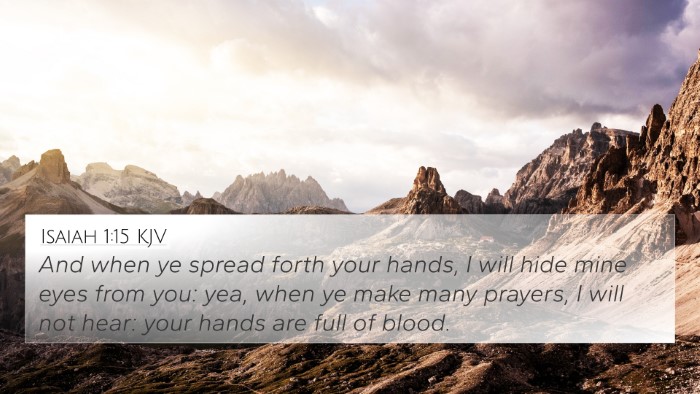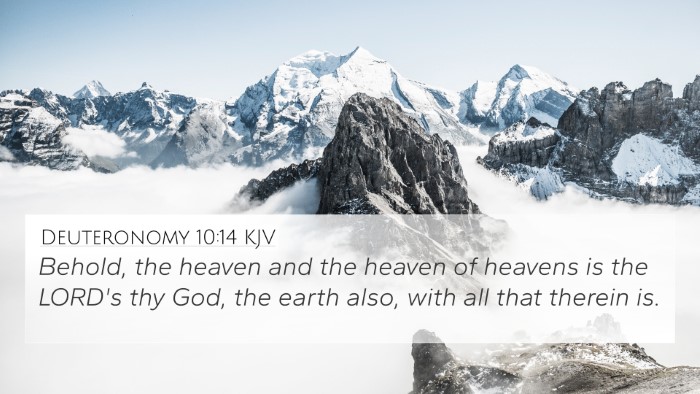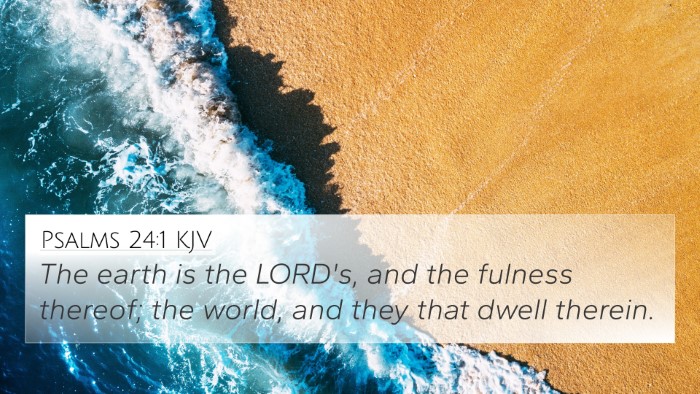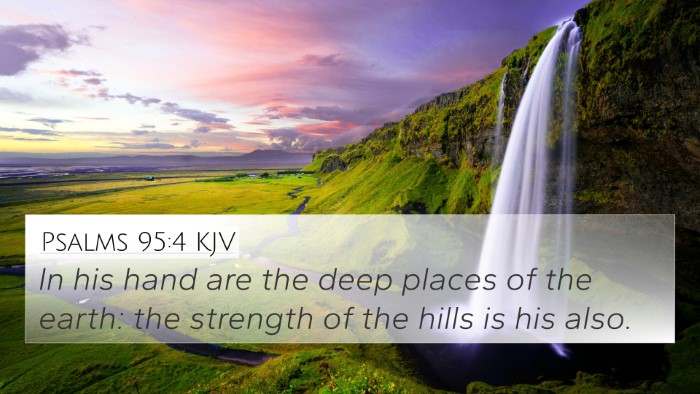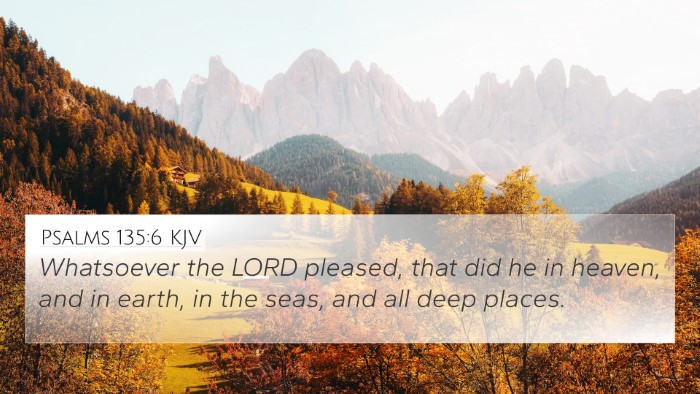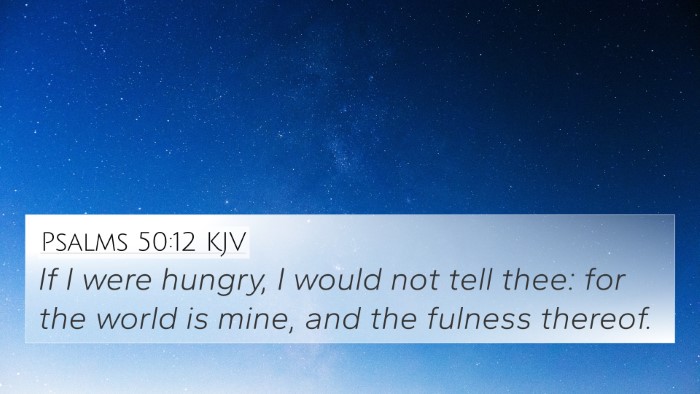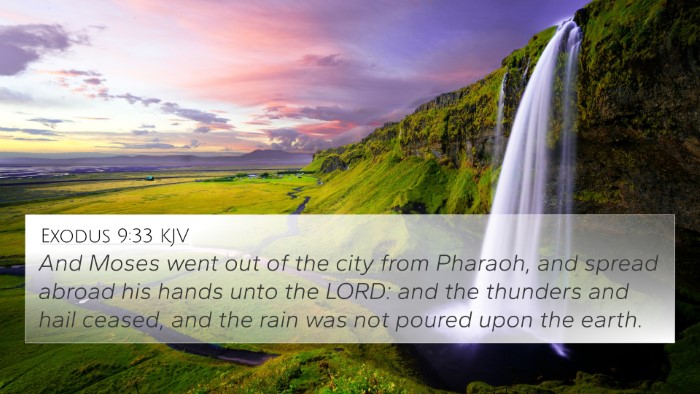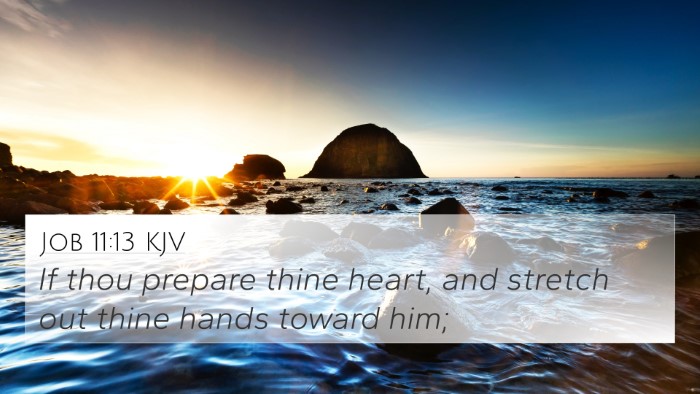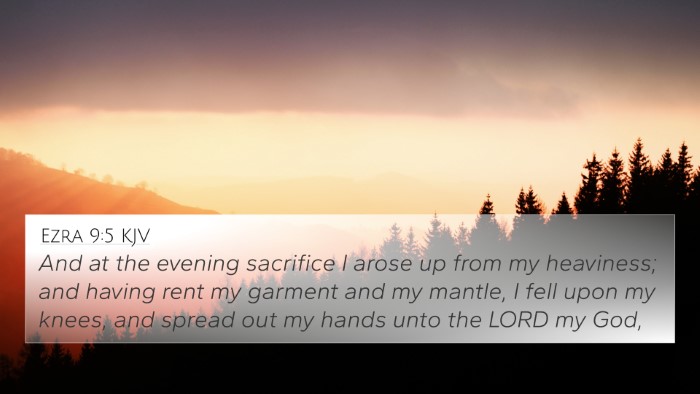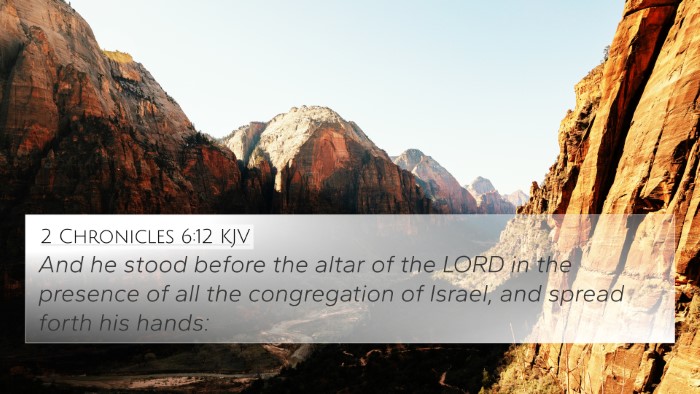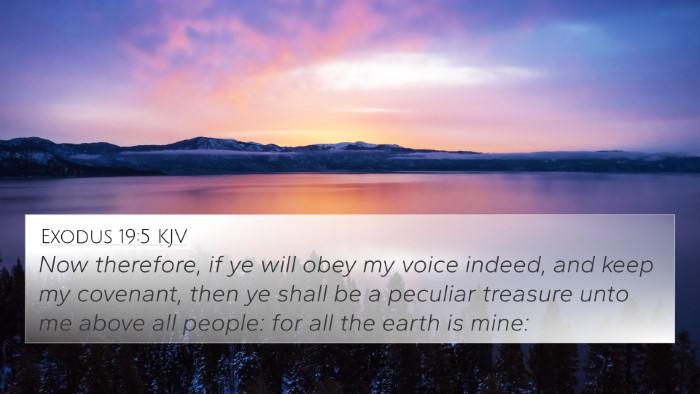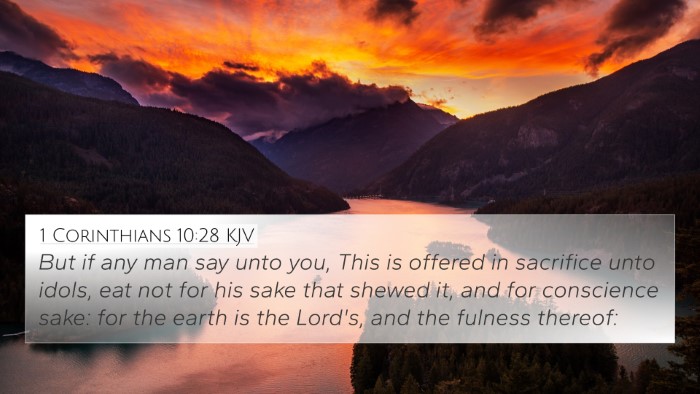Understanding Exodus 9:29
Exodus 9:29 states, "And Moses said unto him, As soon as I am gone out of the city, I will spread abroad my hands unto the LORD; and the thunder shall cease, neither shall there be any more hail; that thou mayest know how that the earth is the LORD's." This verse captures a pivotal moment in the narrative, illustrating God's power over nature and showcasing Moses as His prophet. Below, we explore the meanings and implications drawn from public domain commentaries.
Contextual Overview
The context of Exodus 9 is the series of plagues inflicted upon Egypt as a judgment against Pharaoh's defiance. Moses has been tasked with leading the Israelites out of bondage, but Pharaoh's hardened heart leads to further demonstrations of God's might.
Moses as an Intercessor
Moses' role in this passage is not just one of a leader but also an intercessor. Albert Barnes notes that through Moses, the Lord’s power is revealed, and the cessation of hail serves to confirm God’s control over the elements. The act of spreading his hands symbolizes a prayerful act, highlighting communication with God.
The LORD's Sovereignty
Matthew Henry emphasizes the declaration that "the earth is the LORD's." This phrase encapsulates the overarching theme of God's sovereignty over creation. This assertion is vital for the Israelites, as it roots their identity and liberation in the acknowledgment of Yahweh as the supreme authority.
Connection to God’s Promises
Adam Clarke notes that this interaction is grounded in the assurance that God will uphold His promises. The promise to deliver the Israelites becomes apparent as the plagues serve a dual purpose: judgment for the Egyptians and deliverance for Israel.
Cross-References and Thematic Connections
Exodus 9:29 can be related to several other Bible verses that resonate with its themes of divine authority and intercession. Here are key cross-references:
- Genesis 14:19-20: Acknowledgement of God as the Creator and Sovereign.
- Psalm 24:1: "The earth is the LORD's, and the fullness thereof; the world, and they that dwell therein."
- Romans 8:28: Assurance of God's sovereignty in work for good.
- Job 38:22-23: God questions Job, showcasing His control over nature.
- 1 Kings 18:37: Elijah's prayer for God’s demonstration over Baal.
- Psalms 107:29: God calms the storm, revealing His dominion over chaos.
- Matthew 8:26-27: Jesus calms the storm, demonstrating His authority similar to Moses.
- Revelation 16:21: A future judgment involving hail as part of God's sovereignty.
- Hebrews 1:3: God has the ultimate authority; He upholds all things by His power.
- Isaiah 45:7: God is responsible for both light and darkness, good and evil.
Thematic Implications
The primary themes in Exodus 9:29 involve God's authority, the role of an intercessor, and the acknowledgment of His power. These themes resonate throughout the scripture, making connections between Moses and later figures such as Jesus Christ. Both act as mediators, demonstrating the divine character of God while interceding for humanity.
Inter-Biblical Dialogue
Examining the relationships between this verse and others allows us to appreciate the interconnectedness of Biblical texts. The motifs of divine authority and intercession invite further studies into how these principles apply through scripture and across different contexts.
Conclusion
Exodus 9:29 serves as a reminder of God's supremacy and the importance of prayerful communication with Him. By studying this verse alongside its relevant cross-references, believers can strengthen their understanding of God's role as Creator and Redeemer, appreciating the significance of Moses’ actions and the deeper spiritual insights they provide.
Using Cross-References for Deeper Study
For those looking to explore these themes further, tools for Bible cross-referencing such as a Bible concordance or cross-reference guide can be invaluable. Engaging in cross-reference Bible study allows for a more profound grasp of how scripture interrelates, offering a richer understanding of Biblical truths.

